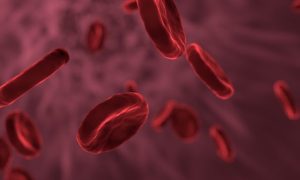health
Health: A Comprehensive Exploration
Introduction
Health, a multifaceted concept encompassing physical, mental, and social well-being, is the cornerstone of human existence. In an era where lifestyle diseases are on the rise, aging populations demand more attention than ever. This article delves into the intricate world of health, exploring its various dimensions, global impact, and the transformative potential of emerging trends. By examining economic considerations, technological advancements, policy landscapes, and societal challenges, we aim to provide a holistic understanding of this vital sector.
Understanding Health: A Multi-Dimensional Concept
Definition: Health is a state of complete physical, mental, and social well-being, not merely the absence of disease or infirmity. This holistic definition, embraced by the World Health Organization (WHO), recognizes that health is a complex interplay of multiple factors.
Core Components:
- Physical Well-being: Involving optimal bodily functioning, including nutrition, exercise, and chronic disease management.
- Mental Health: Focuses on emotional resilience, cognitive function, and the absence of mental disorders.
- Social Well-being: Relates to the quality of relationships, community connections, and social support networks.
Historical Context: The concept of health has evolved over centuries, shaped by societal changes and scientific advancements. From ancient practices emphasizing balance and harmony to modern medical breakthroughs, our understanding of health continues to deepen. The 20th century witnessed significant achievements, such as the eradication of diseases like smallpox and improvements in maternal and child healthcare globally.
Significance: Health is not just a personal matter but has profound implications for societies and economies. It influences productivity, social stability, and overall quality of life. A healthy population contributes to economic growth, reduces healthcare costs, and fosters vibrant communities.
Global Impact and Trends
Health’s influence knows no borders, with global trends shaping its landscape:
- Increasing Life Expectancy: Advancements in medicine and improved living conditions have led to longer lifespans worldwide. According to the WHO, global life expectancy at birth rose from 64 years in 2000 to 73 years in 2020.
- Non-communicable Diseases (NCDs): A significant shift towards NCDs such as cardiovascular diseases, diabetes, and cancer is observed globally. The World Bank estimates that NCDs accounted for 86% of all deaths in 2019, underscoring the need for preventive measures and specialized healthcare.
- Digital Health Revolution: The adoption of digital health technologies, including telemedicine and wearable devices, has accelerated during the COVID-19 pandemic. This trend is expected to continue, transforming how healthcare services are delivered and accessed.
- Global Health Inequities: Despite progress, health disparities persist across regions. Low-income countries often face challenges in accessing basic healthcare, leading to higher disease burdens and lower life expectancies.
Economic Considerations: The Health Care Market
The health sector is a significant economic driver, with global healthcare spending reaching an estimated $8.7 trillion in 2021. This market dynamic varies across regions:
| Region | Healthcare Spending (as % of GDP) | Average Life Expectancy (at birth) |
|---|---|---|
| North America | 17.4% | 79.6 years |
| Europe | 11.5% | 78.3 years |
| Asia | 5.2% | 70.7 years |
| Africa | 4.4% | 63.2 years |
Market Dynamics:
- Healthcare Providers: The market is dominated by a mix of public, private, and not-for-profit organizations.
- Pharmaceuticals: Research and development (R&D) in pharmaceuticals drive innovation but often come with high costs, influencing pricing strategies and access to medications.
- Investments: Private equity and venture capital investments have significantly impacted healthcare startups, fostering innovation in digital health, gene therapy, and precision medicine.
Economic Impact:
- Healthcare contributes to GDP growth through direct employment, R&D expenditures, and the purchase of medical goods and services.
- Inefficiencies and unequal access can result in higher indirect economic costs, such as productivity losses due to preventable diseases.
Technological Advancements: Transforming Health Care
Technology is revolutionizing healthcare, offering innovative solutions for diagnosis, treatment, and patient monitoring:
- Artificial Intelligence (AI): AI algorithms analyze vast medical datasets, enabling accurate diagnoses and personalized treatment plans. Natural Language Processing (NLP) assists in clinical decision-making, while machine learning predicts disease outbreaks.
- Telemedicine: Virtual healthcare consultations have become mainstream, improving access to specialists and reducing wait times. This technology is particularly valuable in rural or underserved areas.
- Wearable Devices: Fitness trackers and health monitoring wearables provide real-time data on vital signs, sleep patterns, and physical activity. These devices empower individuals to take charge of their health.
- Genomics: Advances in genetic testing and sequencing enable personalized medicine, allowing tailored treatments based on an individual’s unique genetic makeup.
- Robotic Surgery: Minimally invasive robotic surgeries offer improved precision and faster recovery times, reducing complications and patient stays.
Policy and Regulation: Governance of Health Care
Strong policies and regulations are vital for ensuring quality, safety, and accessibility in healthcare:
- National Health Strategies: Governments develop comprehensive health strategies to address specific challenges, such as the US Affordable Care Act (ACA) or the UK’s National Health Service (NHS). These policies shape healthcare delivery, insurance coverage, and funding mechanisms.
- Licensing and Certification: Medical professionals require licenses to practice, ensuring minimum standards of education and competence. Regulatory bodies oversee the approval and monitoring of pharmaceuticals and medical devices.
- Data Privacy Laws: With the rise of digital health, data privacy regulations like GDPR in Europe ensure patient confidentiality and ethical data handling.
- Healthcare Reimbursement Policies: These policies influence healthcare utilization and provider behavior by determining how much insurance companies pay for services rendered.
Challenges and Criticisms: Overcoming Barriers
Despite its advancements, the health sector faces significant challenges:
- Inequitable Access: Disparities in healthcare access persist due to socioeconomic factors, geographic location, and social determinants of health. Rural areas often lack adequate medical facilities, leading to delayed care.
- Rising Healthcare Costs: Expensive treatments, pharmaceuticals, and administrative costs contribute to increasing healthcare spending, making it unaffordable for some.
- Healthcare Worker Shortages: Many regions struggle with a shortage of trained healthcare professionals, impacting service delivery and patient outcomes.
- Anti-vaxxers and Misinformation: The rise of anti-vaccination movements and the spread of health misinformation pose challenges to public health efforts, particularly during disease outbreaks.
Strategies for Improvement:
- Universal Healthcare Coverage: Expanding coverage through innovative financing mechanisms ensures equitable access to essential healthcare services.
- Digital Health Literacy: Educating communities on digital health tools empowers individuals to engage with healthcare technologies effectively.
- Primary Care Fortification: Strengthening primary care systems improves preventive services, reduces healthcare costs, and enhances patient outcomes.
- Global Collaboration: Addressing global health challenges requires international cooperation, sharing of best practices, and resource allocation for underserved regions.
Case Studies: Exemplary Applications of Health Innovation
1. Digital Health in Kenya
Kenya’s mobile money transfer system, M-Pesa, has been leveraged to improve healthcare access. The “mHealth” initiative allows patients to book appointments, receive health advice, and pay for services remotely using their mobile phones. This innovation has increased clinic visits and improved patient retention, especially in rural areas.
2. Telemedicine in Rural America
The telemedicine program at the University of Texas Health Science Center in El Paso connects rural communities with specialists through video conferencing. This model has successfully provided cardiovascular care to patients in remote areas, reducing travel time and costs associated with traditional in-person visits.
3. Genetic Testing for Personalized Medicine
The use of genetic testing in cancer treatment is a prime example of personalized medicine. By analyzing an individual’s DNA, doctors can identify specific mutations driving cancer growth, enabling targeted therapies. This approach has shown remarkable success rates and improved patient survival in certain cancers.
Future Prospects: Emerging Trends and Growth Areas
The health sector stands at the precipice of significant transformations:
- Precision Medicine: Building on genetic insights, precision medicine aims to tailor treatments based on individual characteristics, improving outcomes and reducing side effects.
- Digital Therapeutics: Digital interventions for mental health conditions are gaining traction, offering cost-effective treatments accessible via mobile apps or online platforms.
- Telehealth Expansion: The COVID-19 pandemic accelerated telehealth adoption, and this trend is expected to continue, reshaping healthcare delivery models.
- Healthcare Data Analytics: Advanced analytics will enable predictive modeling for disease outbreaks, personalized risk assessments, and optimized resource allocation.
- Regenerative Medicine: Fields like cell therapy and tissue engineering hold promise for repairing damaged organs and tissues, potentially revolutionizing treatment for various diseases.
Conclusion: A Journey Towards Optimal Health
Health is a complex, ever-evolving field that demands multifaceted approaches to address global challenges. From technological advancements to policy reforms, the journey towards optimal health involves continuous innovation, collaboration, and adaptation. By leveraging digital tools, embracing precision medicine, and prioritizing equitable access, we can create a healthier, more sustainable future for all.
FAQ: Answering Common Questions
Q: What is the role of exercise in maintaining good health?
A: Regular physical activity is crucial for overall health. Exercise strengthens muscles and bones, improves cardiovascular fitness, enhances mental well-being, and reduces the risk of chronic diseases. The WHO recommends at least 150 minutes of moderate-intensity or 75 minutes of vigorous-intensity exercise per week for adults.
Q: How does stress impact health?
A: Chronic stress can have detrimental effects on both physical and mental health. It contributes to cardiovascular disease, weakened immune system, anxiety, depression, and sleep disorders. Managing stress through techniques like mindfulness, meditation, or regular exercise is essential for maintaining optimal well-being.
Q: What are the benefits of a balanced diet?
A: A balanced diet rich in fruits, vegetables, whole grains, lean proteins, and healthy fats provides essential nutrients vital for bodily functions. It supports immune health, maintains healthy weight, reduces disease risk, and contributes to overall longevity.
Q: How important is sleep for overall health?
A: Sleep is restorative and plays a critical role in physical and cognitive function. Adequate sleep improves memory consolidation, enhances problem-solving skills, regulates hormones, and supports the immune system. Lack of sleep is linked to increased risk of obesity, diabetes, cardiovascular disease, and mental health disorders.

Karachi’s Culinary Secrets: Nutrition Guidance for Optimal Health
In Karachi, understanding nutrition is key to optimal health due to its diverse culinary offerings........

Public Health Campaigns in Karachi: Strategies for Urban Wellness
Public health campaigns tailored to Karachi's unique challenges, leveraging cultural sensitivit.......

Unlocking Restful Nights: Wellness Tips for Better Sleep in Karachi
Karachi residents can significantly enhance their health by prioritizing sleep quality, as guided by.......

Karachi’s Natural Healing: Wellness Tips for Everyday Living
In fast-paced Karachi, residents prioritize health through natural remedies like herbal teas and ess.......

Unveiling Karachi’s Health Secrets: Alternative Medicine for Modern Wellness
Karachi, Pakistan's vibrant metropolis, is a hub for alternative medicine enthusiasts seeking h.......

Navigating Chronic Diseases: Wellness Strategies for Karachi’s Health
In Karachi, chronic diseases pose significant challenges due to varied access to preventive care. Ef.......

Stress Management Techniques for Optimal Health and Wellness in Karachi
In the fast-paced city of Karachi, managing stress is key to maintaining health and wellness. High s.......

Karachi’s Health Trends: Digital Solutions, Disparities, and Sustainable Wellness
Karachi, Pakistan's vibrant metropolis, faces unique challenges in global health trends due to.......

Unveiling Karachi’s Top Health & Wellness Products: Expert Reviews
Karachi's health and wellness market offers a vibrant tapestry of choices, from natural remedie.......

Navigating Karachi’s Health Market: Wellness Tips for Smart Buyers
Karachi's diverse health product landscape demands strategic navigation due to information over.......